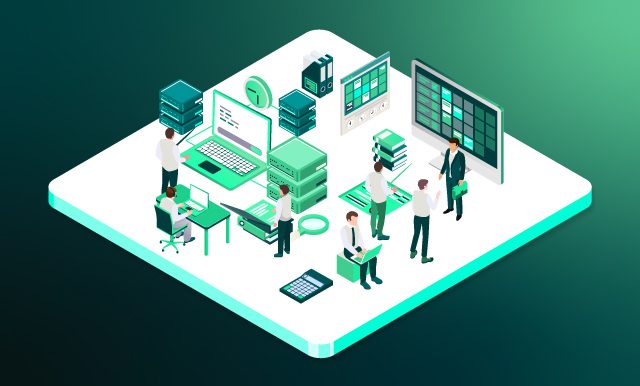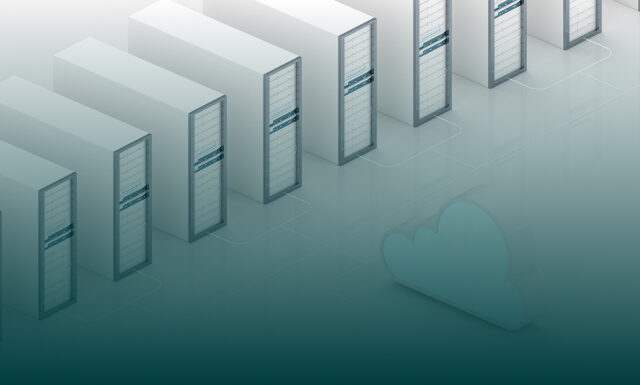Vertical Software as a Service (SaaS) is an innovative approach to providing software solutions – specialized, industry-specific technology resources tailored to unique needs and goals.
In this blog post, we explore why many businesses are turning towards vertical SaaS to improve their operational efficiencies, decrease costs, and enhance customer satisfaction. Through a better understanding of the value vertical SaaS can bring to your business, you’ll be empowered with the knowledge needed to make informed decisions regarding which type of software solution will best meet your company’s specific needs.
Introduction to Vertical SaaS
Vertical SaaS is a specialized type of cloud-based software that is tailored for specific businesses or industries. It provides more in-depth and industry-specific features than traditional horizontal SaaS solutions, which are generalized software applications intended for general use across multiple industries.
Vertical SaaS solutions development happens from the ground up to provide an all-in-one solution tailored to a particular industry. This can include specialized customer relationship management (CRM) tools, reporting and analytics, task management, automated billing and invoicing, and more.
For example, there are different CRM tools available for different types of businesses, such as retail, finance, education, and healthcare. Each type of business will have different requirements for customer service, sales tracking, and marketing automation. With vertical SaaS solutions, these needs can be addressed in an efficient manner while staying on budget.
Also, as businesses grow their operations, they often need to scale their software. With vertical SaaS, this can be done quickly because the application is built from the ground up with flexibility in mind. Companies can expand their operations without having to rework existing systems or find new ones capable of handling the increased workloads they need as they grow larger.
In comparison with traditional horizontal SaaS solutions, where departments have very little control over customization or functionality because the software is designed for general use across multiple industries, vertical SaaS offers more detailed features and options that are tailored specifically for a given industry or sector. This allows businesses to get precisely what they need without investing extra time and money into customization efforts that may be required if using generic software instead.
Benefits of Vertical SaaS
Vertical SaaS solutions are becoming increasingly popular among businesses due to the numerous benefits they offer. By leveraging these advantages, companies can improve their operations while creating better outcomes for their customers at the same time.
Increased Efficiency
By leveraging cloud-based technology, businesses can streamline their processes and reduce the manual labor associated with certain tasks. This could include anything from automating customer service inquiries to optimizing data analytics processes. Furthermore, this approach also helps create better customer experiences as they can get faster responses and improved customer support.
Streamlined User Experience
Vertical SaaS solutions are designed with users in mind, creating complete end-to-end experiences that are easy to use and navigate while also providing all the information necessary at each step of the process. Additionally, these solutions use automated processes so tasks can be completed quickly with minimal effort from users.
Cost-Efficiency
These solutions are tailored to specific industries, allowing businesses to more easily customize and access the needed services for their particular sector. As a result, these vertical SaaS solutions allow businesses to save time, money, and resources by eliminating the need for developing custom software applications from scratch.
Flexibility
Vertical SaaS solutions can often be scaled up or down as needed, giving businesses more flexibility regarding usage costs. This is especially helpful for small businesses that may not have the budget or resources to build a fully featured application from scratch. Furthermore, these solutions can be quickly updated as new tools and technologies emerge to stay current with industry trends without requiring any additional investments from the business itself.
Enhanced Security
Finally, vertical SaaS solutions offer enhanced security options compared to traditional software applications because the hosted platform has been designed specifically to protect data privacy and security. This ensures that sensitive customer information remains safe from potential breaches or malicious attacks while providing users with peace of mind knowing their data is secured by cutting-edge security protocols.
Industry-Specific Features
Vertical SaaS solutions are an efficient and cost-effective way to provide tailor-made software services to specific industries or customer segments. They offer a variety of unique features and functionalities, such as:
Industry-Specific Tools
Solutions that are built from the ground up to serve the specific needs of a certain industry. This enables businesses to access industry-specific tools tailored specifically to their needs, making them more competitive in their markets.
Customization
The ability to customize the software according to a company’s exact requirements. Because vertical SaaS solutions are built from scratch, companies can choose which features they want to be included in their product and how those features will work for them. This helps businesses create a product optimized for their unique business model.
Rapid Deployment and Scalability
Vertical SaaS solutions can be rolled out quickly and easily, allowing businesses to start using them right away without investing in long development cycles or waiting months for customizations. Additionally, these solutions can scale quickly with a company’s growth due to their cloud infrastructure, ensuring they have the resources they need when they need them most.
Comprehensive Analytics Capabilities
Vertical SaaS solutions come with powerful analytics tools that allow companies to track performance in real-time and make informed decisions about optimizing their products for better results. With such capabilities, companies can maximize efficiency by pinpointing areas where there is room for improvement and acting on those insights immediately rather than waiting until mistakes have been made or goals haven’t been met.
Compliance with Industry Regulations
Vertical SaaS solutions provide industry-specific features and functionalities that are tailored to the specific needs of the industry. For example, in the healthcare industry, SaaS solutions can offer features such as electronic medical record-keeping, patient management systems, and appointment scheduling software. In the financial services sector, vertical SaaS solutions can include tools for customer relationship management, analytics and reporting, risk assessment and analysis, digital payments processing, and fraud prevention.
Real-World Use Cases
A perfect example of a business leveraging vertical SaaS solutions to improve its operations is the healthcare industry. Hospitals and other medical institutions increasingly use cloud-based services like electronic health records (EHRs) to store patient data securely, streamline medical processes, and improve patient care. With an EHR system, doctors can access patients’ medical records remotely, send prescriptions, and even share images or lab results with colleagues. By utilizing a vertically-tailored SaaS solution, hospitals can reduce costs while enhancing their patient care capabilities.
The Health Assurance Plan (dental software) is a dental subscription program that utilizes vertical SaaS solutions. This type of solution is specifically tailored to suit the needs of the dental industry, offering innovative tools and resources to help streamline patient care. These services include appointment scheduling and billing systems, patient portals, and secure communication protocols. By leveraging the power of vertical SaaS solutions, the company offers customers a cost-effective way to access advanced technology without investing in expensive hardware or software packages.
The company also makes use of additional advantages such as improved scalability, secure data storage, and enhanced customer service. Furthermore, the program includes automatic updates, which are crucial for meeting industry standards and providing patients with the best possible care experience.
Guidewire uses vertical SaaS solutions to streamline insurance operations by improving efficiency, enhancing customer service, and reducing costs. Through its vertical SaaS platform, Guidewire offers customers a wide range of services, including:
These services enable insurance carriers to easily integrate their existing systems with Guidewire’s cloud platform for improved operational efficiency. With its intuitive design, Guidewire allows agents to access customer data quickly while providing an enhanced customer experience.
Although technological innovation has always caused disruption, we are already seeing vertical SaaS firms unbundle the traditional payment giants. Vertical SaaS in the financial technology (fintech) field is snatching market share from the small to medium-sized firms that contribute more than 50% of the global GDP in high-income nations, including PayPal and Square, which formerly disrupted traditional bank models.
Numerous SMBs choose integrated payment methods. They want to include payments in the business management software they use. Payments are typically the most effective form of monetization for the vertical SaaS companies that offer these “all-in-one” products to the SMB.
For instance, Mindbody offers an integrated booking and payment platform in the wellness industry, bringing businesses and the wellness world together through a simpler-to-manage booking and payment system. Toast is an end-to-end platform that restaurants use to process transactions, track purchases, handle payroll, and more.
A financial technology business called Riskalyze offers software as a service to financial advisors in the US. By utilizing these vertically tailored SaaS solutions, the company can gain valuable insights into customer behavior while reducing operational costs and improving security measures.
Future of Vertical SaaS
Vertical SaaS solutions are replacing outmoded technology and generic, one-size-fits-all horizontal SaaS solutions in professional services organizations (PSOs), according to research by Forrester Consulting. Most (89%) of the executives and IT leaders Forrester polled concur that vertical SaaS is the future, and this trend shows no signs of abating.
The advantages of vertical SaaS solutions make them ideal for innovation in various industries such as healthcare, finance, retail, energy, and more. By leveraging these advanced technologies, companies in these industries can improve operational efficiency and reduce costs while improving customer experience. For example:
With their scalability, flexibility, and cost-effectiveness, these solutions could help businesses stay competitive in an ever-changing market while creating products and services that exceed customer expectations. With further development of Vertical SaaS trends, we can expect the following benefits:
- Customer intelligence: Allows businesses to acquire customer data and intelligence related to their industry, essential for gaining customer-focused insights.
- Pre-defined measurements and KPIs: It is already equipped with pre-defined metrics, KPIs, and analytics that organizations can use to evaluate and improve short- and long-term operations and performance.
- Business value: As software is created to satisfy industry standards, it has a higher level of business value for business performance.
- Enhanced data governance: By including industry-specific compliance capabilities, vertical SaaS is positioned to solve data governance procedures. This has the added advantage of increasing transparency.
- New markets: As the need for vertical SaaS solutions rises, very niche goods and solutions will hit the market to solve very particular pain points in the industries they serve. A recently released childcare management app was so beneficial that it quickly attracted millions of dollars in funding.
- A higher standard: As more developers compete to stand out from the burgeoning crowd, superior products and services from sector-specific vertical SaaS providers will continue to appear. A plethora of cutting-edge specialty solutions will emerge due to the increased competition that will compel SaaS providers in the vertical market to address the needs of their users directly.
Final Word
In conclusion, vertical SaaS has revolutionized the way businesses operate and how they access industry-specific software solutions. This type of software as a service makes it easier for customers to get up and running with their customized products, resulting in a better user experience than ever before. Though the process can seem complex at first, the advantages that come with vertical SaaS are worth it.
With expert assistance from companies like Forbytes, you can more easily reach your goals of building custom digital products fast and efficiently. So don’t be overwhelmed by the thought of creating digital products — trust us when we say it’s entirely doable. With our help, you can certainly create something special for your business.
Ready to get started? Contact Forbytes today.

Our Engineers
Can Help
Are you ready to discover all benefits of running a business in the digital era?

Our Engineers
Can Help
Are you ready to discover all benefits of running a business in the digital era?











